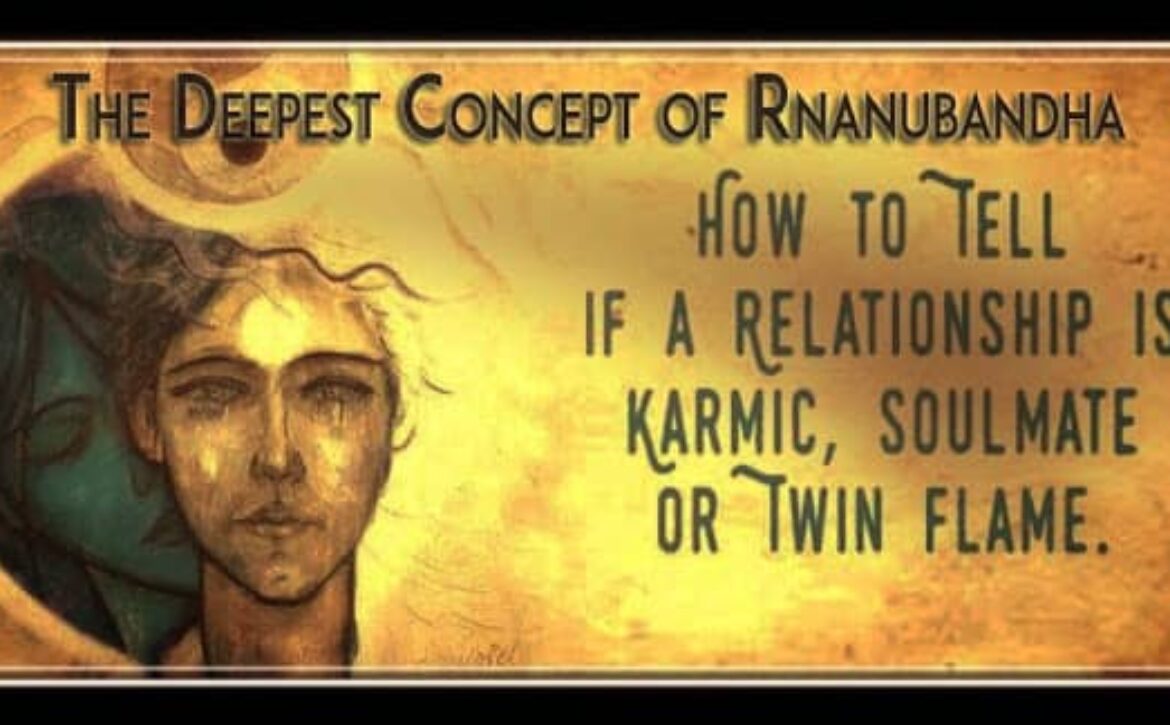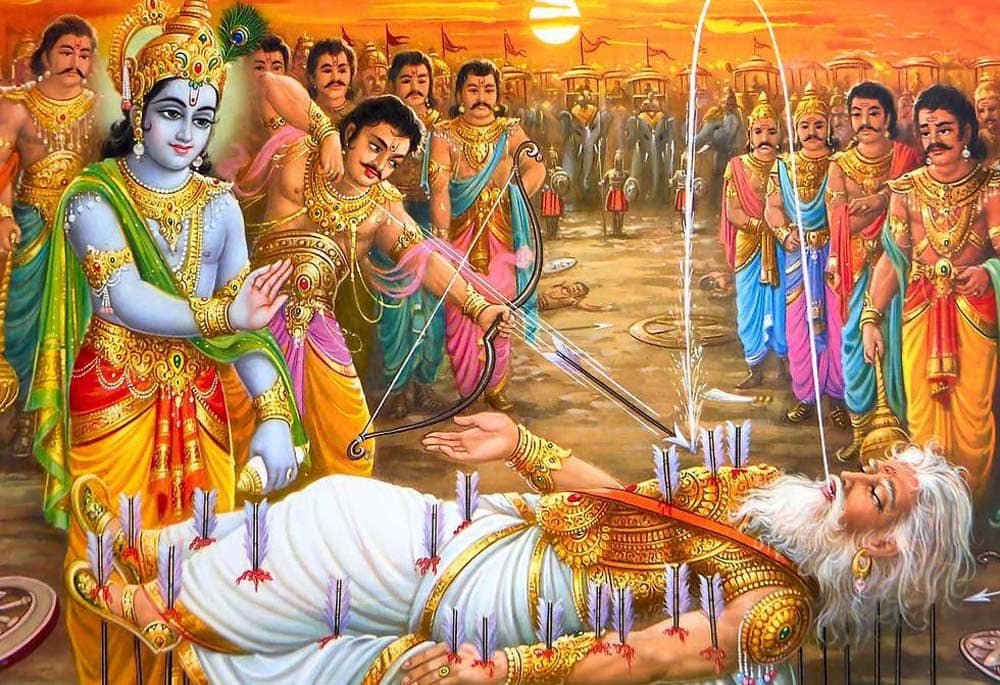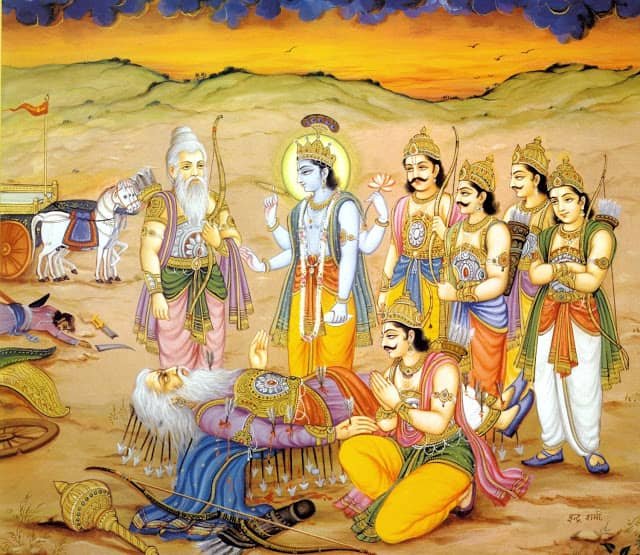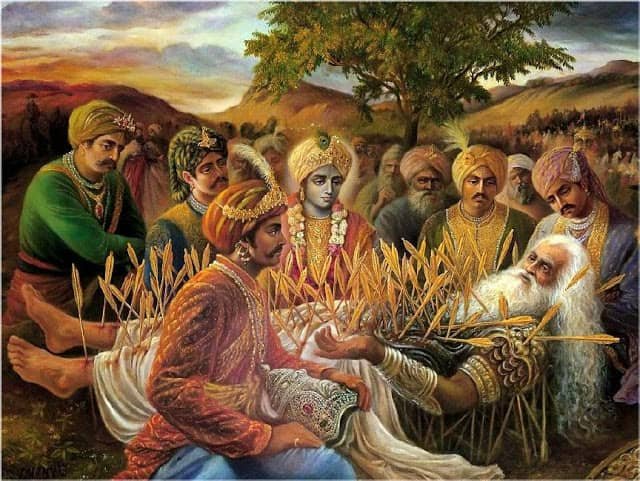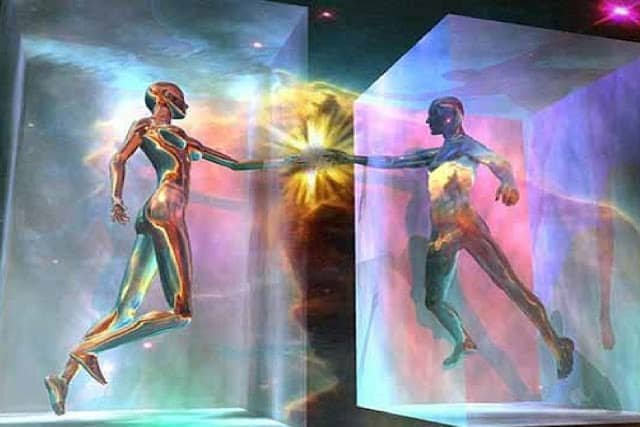Runanubandha part 1: Soulmates, Karmic Ties and Concept of Rinanubandhan in Vedic Astrology
Written, Compiled and Researched
by Rocky Jamwal | Re-edited : January 2024
Introduction
Understanding Runanubandha, Karma, and Karmic Connections

Karma is a notion that has its origins firmly ingrained in a wide variety of philosophical and spiritual institutions. It is the conviction that our deeds, intentions, and ideas all have repercussions that have an effect on the experiences we have as well as those we will have in the future. Every every action that we perform leaves an energy imprint that has an effect not only on our own lives but also on the lives of others around us, according to this concept.
The idea of runanubandha is one facet of karma that is often disregarded by people. Our karmic ties or debts with other people are referred to as runanubandha, which is a phrase that originates from the Sanskrit language. It is the concept that we are connected to other people as a result of the repercussions of our acts in the past, and that these ties have a substantial part in determining the situations that we are now facing.
Understanding Karma
The concept of karma is often characterized as a circle of cause and consequence. Every action that we perform will have a corresponding result, according to the rule of action and reaction, which states that they are inextricably linked. In addition to our physical and mental well-being, our relationships, and the circumstances of our lives, these repercussions may present themselves in a variety of different ways.
Keeping in mind that karma is not just about punishment or reward is an essential point to keep in mind. The system in question is not one of divine judgment; rather, it is a natural rule that functions in an unbiased manner. We are not subject to the influence of an outside force; rather, the outcomes of our activities are the direct result of the decisions that we exercise.
Samskaras are impressions or imprints that are created on our awareness as a result of our actions, intentions, and thoughts. These samskaras build throughout time and have an effect on the experiences that we will have in the future. Actions and intentions that are good lead to positive results, while actions and intentions that are bad lead to negative consequences.
Exploring Runanubandha
Through its emphasis on the interconnection of all creatures, Runanubandha develops the idea of karma and expands upon its definition. Essentially, it implies that we are connected to other people via a complex network of karmic relationships. These connections are developed by our encounters and relationships with other people, both in this incarnation and in prior lifetimes.
The concept of runanubandha suggests that every individual we come into contact with has a karmic tie to us. These associations may be either favorable or negative, depending on the nature of the activities that we have taken in the past. As an instance, we could have good connections with those who have assisted us in the past, whereas negative connections may exist with others whom we have caused damage to.
These karmic ties have an impact on the situations and relationships we are now experiencing. These things have the potential to influence the people we bring into our lives, the lessons we need to learn, and the difficulties we have to overcome. Insights into the patterns and dynamics of our interactions may be gained via the process of comprehending and accepting these connections.
The Significance of Karmic Connections
One of the most transformational experiences we may have is when we become aware of and comprehend our karmic ties. It enables us to accept responsibility for the acts we have taken and the results those actions have produced. It is possible for us to get a more profound comprehension of both ourselves and the relationships we have if we acknowledge these connections.
In addition, taking the time to acknowledge our karmic links may assist us in breaking away from destructive behaviors and cycles. It gives us the ability to think things through and make decisions that are in line with our goals and ideals. Through the cultivation of good acts, intentions, and ideas, we have the ability to realize a life that is more harmonious and meaningful.
It is essential to approach the idea of karmic links with an open mind and heart in order to get the best results. In spite of the fact that it may be tempting to place blame or seek retribution, the fundamental meaning of karma rests in the process of human development and change. We are able to break away from the cycle of bad karma and create a world that is more positive and loving if we concentrate on our own acts and intentions.
In conclusion, knowledge of karma and the notion of runanubandha, which is closely tied to it, provides significant insights into the interwoven nature of our lives. It is possible for us to gain the ability to make conscious decisions and to build a life that is more satisfying and meaningful if we have an understanding of the karmic ties we have with other people and the repercussions of our actions.
Note : For understanding Karmic Cycle one need to understand the essence of Karama from Bhagwad Gita and Mahabharta Bhishma Parva , chapters 43 to 124.
Understanding Runanubandha from Mahabharata
An excerpt from the short narrative that depicts Bhishma and Arjuna having a conversation is shown here. During the Mahabharta conflict, Bhishma was fully aware of the fact that he was also on the side of the Kauravas; nevertheless, it was just his physical body that was on their side; his heart was not on their side.
During their conversation, Bhishma shared with Yudhishthira the following:
“My son, Duryodhana, was doomed when he ignored Krishna’s advice; your victory was guaranteed.” Place Shikhandi in front of me while we are engaged in combat, and I will let down my bow and arrows. I will not have a fight.”
Now the issue that has to be asked is, “Why Shikhandi?
“In his previous existence, Bhishma had turned down the opportunity to marry Amba, and he was aware that Shikhandi was none other than herself “.
It was her desire to get revenge on him. After that, she prayed to Lord Shiva, wishing for a blessing that would allow her to eliminate Bhishma herself. The blessing was bestowed upon her by Lord Shiva; she was reborn with the intention of killing Bhishma; however, Bhishma refused to acknowledge Shikhandi as a man and would not engage in combat with her.
This one again demonstrates that karmic connections always come to us in whatever form, whether it be in the form of revenge, love, or hatred, and that it often manifests itself as pains as well. Runanubandham, which translates to “karmic relationship with them,” is the format in which one must pay off his karmic obligation.
In addition, while Bhishma was laying down at the conclusion of the Kurukshetra War, after being wounded by Arjuna’s thousand arrows, Bhishma provided Arjuna with the following explanation of the previous life:
Oh, Pandavas ! The actions that we have taken in the past have resulted in everything. The seeds of plants will never germinate if they are not planted.
In a similar vein, actions that were carried out in the past, whether they were good or terrible, have the potential to bring about positive or negative outcomes in the present. One may acquire huge fortune in the present without exerting any effort if they have made charitable contributions in the past.
Tapas that were prepared in the past bring about joys in the present.
Through the performance of service to elders and gurus in previous lifetimes, one is able to acquire knowledge and intellect without having to formally study under any guru. If a person is able to observe non-violence in their previous life, then they will continue to live for a significant amount of time in their current existence.
Because of this, sadhus, also known as saints, constantly practice nonviolence, donate to charitable causes, respect gurus, and serve elders and visitors, among other things. Then and only then will they be able to take pleasure in the next death. To put it another way, it is all about carrying out good or bad karmas in the past in order to achieve a positive or negative outcome in the present.
(Mahabharta, Bhishma Parva,chapters 43 – 124)
Behind the Scenes: Figuring Out What the Story Is Trying to Say
Its the Karama that become the reason of this birth, after accumulating new karamas it leads to the basis of your next birth. After the death, soul of a person gathers all accumulated karamas from current one like a reservoir in that person’s mind. Later Divinity or God as per the divine Karmic law takes a handful of those Karmas and further it leads to a new karmic seed in the form of body.
So if a person has done good Karmas with those individual people, he/she might gets a good godly body in heavens first and then further they takes birth in a same learned, Religious and dutiful families, forms Close association with those family members in as a brother, sister, mother or father as a part of Karmic Rina, those having done good karama with that soul, during this whole process they enjoys relations with them.
If he/she has done bad karmas in past life then that person’s soul further goes to lower wombs of birds and animals.After moving through those lower Varnas, exhausting bad karmic seeds Soul further takes birth in those families having bad pending karmic deeds with them to further clear off debts in the form of karmic relations.This way process of Birth and death in the karmic relations keep going on unless and until karmas neutralises into zero.
( Source : https://gita-blog.blogspot.com/2013/07/our-present-life-is-result-of-our-deeds.html)
Law of Karama and Runanubandhan as per Bhagwad Geeta
Below are verses of Bhagwat Gita further justifies the Laws of Karama and connection with the Runanubandhan Theory:
“Sri Krishna said:O Arjuna, As the wind carries away odours from their seat, even so the Jivatma (soul), the lord of the body, snatching these (the mind & the senses) from the body, which it casts off, migrates into the body, which it acquires.
“yada sattve pravrddhe tu pralayam yati deha-bhrt
tadottama-vidam lokan amalan pratipadyate”
“Sri Krishna said: O Arjuna, When one dies in the mode of goodness, he attains to the pure higher planets of the great sages.”
“rajasi pralayam gatva karma-sangisu jayate
tatha pralinas tamasi mudha-yonisu jayate”
“Sri Krishna said: O Arjuna, When one dies in the mode of passion, he takes birth among those engaged in fruit producing activities (i.e. as a man or woman on earth); and when one dies in the mode of ignorance, he takes birth in the bird & animal kingdom.”
“Karma has been a pop culture term for ages. But really, what the heck is it? Karma is not an inviolate engine of cosmic punishment. Rather, it is a neutral sequence of acts, results, and consequences.
Receiving misfortune does not necessarily indicate that one has committed evil. But it is a sufficient indicator of something else.And that something else can be anything, as long as it is a logical consequence of what has come before.
“If you want to know the answer to ‘Who am I?’, then you will have to go to a Gnani purush [the enlightened one]. The Gnani Purush will give you Knowledge of your real Self [Who Am I] in the presence of the egoism. Thereafter your accounts (karmic) will be settled [& things will start falling in place].If the ‘effect’ is experienced, [karmic] bondage is created. If one experiences the ‘effects’ alone by himself, the [karmic] bondage will not be sticky. If he involves another person in it, the karmic bondage will be sticky.”
The Relationship Between Runanubandha and Vedic Scriptures in Padma Purana
An explanation taken from the Padma Puran
There is a notion that posits the presence of karmic relationships between persons. This idea is known as runanubandha, which is also known as the cycle of indebtedness. According to this theory, every single human being is linked to other people by means of a complex network of debts and responsibilities that have been accumulated over the course of several incarnations.
The consequences of these relationships may be either favorable or harmful, and they have an impact on the way our lives unfold.
Runanubandha is a notion that is extensively treated in the Padma Purana, which is one of the eighteen Mahapuranas. This ancient literature places a strong emphasis on the significance of comprehending and resolving these karmic debts in order to achieve spiritual emancipation attained.
Vedic scriptures, including the Vedas, Upanishads, and Puranas, serve as a guiding light for individuals seeking spiritual wisdom and enlightenment. These ancient texts contain profound insights into the nature of existence, the purpose of life, and the interconnectedness of all beings.
Within the Vedic scriptures, the concept of Runanubandha is intricately woven into the fabric of karma and rebirth. It is through these texts that we gain a deeper understanding of the intricate workings of the universe and the role of our actions in shaping our destiny.
Quote from Padma Puran :
“Runanubhanda Rupena Pashu Patni Suta Aalaya Runakshaye Kshyayaanthi Tatra Parivedana.”
Meaning: Every Relations are the result of previous birth bondage. Once the debt is annihilated there is no relationship and hence end of suffering in this Samsara.
The Hypothesis behind Runanubandha
When we are tied by karmic links that have lasted for many years, it is not simple to comprehend what these relationships are or why we continue to adhere to them from the time we were children. We engage, share, love, and react to a large number of individuals in a manner that is unique to each of us. One of the most effective methods for comprehending karmic bonds is to just be quiet, comprehend them, and pose a multitude of inquiries to one’s own soul.
In layman language, a karmic relationship is a deep-rooted karmic action-based romantic bond that is formed with someone with whom you feel connected always and somehow you think you are made for, and most probably it might belong to your soul group categories in order to repent, heal past life lessons, and ease the pain a soul has been going through for many years.
The category of karmic connections is the kind of relationship that seems to be a soulmate-like tie, which is something that no one seeks in a direct manner, but in the end, everyone will obtain it in the karmic cycle of this life. In addition to being difficult to comprehend and emotionally draining, these relationships may sometimes manifest themselves in the form of verbal and physical aggression, and most crucially, they are characterized by a dominating and manipulative nature from the beginning.
There is no way to escape such karmic bindings until and until the soul has been able to acquire a profound understanding of his karmic teachings. In the meanwhile, they continue to go through a cosmic cycle for years in order to comprehend one another.
Those are awaiting them from this birth system. The only way to mend and comprehend a karmic connection is for one or both of the parties involved to make an effort to comprehend the spiritual foundations of the relationship and to make the choice to break free from the karmic cycle and develop their spirituality. In order to put a stop to a karmic connection, one must improve their strength and broaden their perspective, as well as develop their spirituality and think more deeply about life. When any of the individuals involved in the karmic relationship make the decision to entirely disengage from the connection, whether it be physically or spiritually, the relationship will come to an end.
In order to get a complete understanding of a karmic connection and to cure it, you need to devote a significant amount of time to self-realization or evaluation. Before you decide to go on to the next relationship, you need first look inside yourself to completely grasp the process of the whole connection, which includes the lessons that the relationship has taught you that you need to learn.
Similar Article : Decoding Astrological Mystery of Past Life Astrology and Past Life Regression : Past, Present, and Beyond – Part 1
Does the Really True Soul Mate Exist? : The Seed of Karmic Lessons
Is it a Chain of Karmic Relations ?
You will find that things continue to repeat themselves in any new relationship if you immediately jump into a new relationship without even realizing, repenting, or self-evaluating the entire situation of the bond without understanding the pattern of the relationship. This is due to the fact that the deeply rooted issues have not yet been fully healed and realized within the new relationship.
The decision to If you get into a new relationship too soon after the conclusion of the previous karmic tie, you will once again reopen some portions of the pattern cycle of karmic pains. The realization of the error that you are making in previous relationships is the core of a karmic tie in any karmic misery that you may be experiencing. The time and the scars that have been caused by all of the relationships, as well as the time that they need to educate and heal you, must be given to them.
Once you have learned the karmic lessons and patterns of keeping falling in multiple relationships and you have tried to break down this pattern by growing spiritually, at the end you will be free from all of your patterns in a one-way go and you will be a free bird for forever where there will be no pending karma in your basket. Without any involvement from you, even this cycle will finish itself for the other person on its own without any involvement from you. In any life, if you have made an effort to thoroughly heal the lessons that you have learned inside yourself, you will be free from all of the karmic connections that are still lingering from the past.
After the ultimate ending revelation and the breaking of the pattern of karmas, learning, suffering, and mending the karmic tie, the only method to meet genuine love soulmates will be feasible. This is the only circumstance in which this will be achievable. One of the reasons that a karmic connection appears in our life is to bring to our attention the shame, remorse, and unresolved grief that we have carried with us from a number of previous incarnations. As you go through the suffering that is associated with your karmic cycle, you will be able to open yourself up to the possibility of experiencing the genuine love partner that you truly deserve throughout this life cycle.
Does Astrology Have an Answer? The Investigation
Astrologically, we can understand those karmic bonds but not in an easy lay man language via what we are studying from classical scriptures but yes there are many tools and system to understand ” runanubandham” concept or Karmic relations between two people via Jamini and Nadi systems.I have tried to explain the concept of karmic relationships and Runanubandha concept from many of jamini sutras and what i have observed from past many years in many different charts. but first of all we need to understand the basic concept, what actually is Runanubandha or Karmic debit of two people or the people we interact with them.
What are soul mates? Are they different from karmic relations?
When it comes to the spiritual realm, a soul mate may be any relationship that has a significant position in your life. It might be a member of your family, a close friend, or even your romantic partner. These are spirits who have a different purpose in life and come into our lives for more significant causes. They also have more profound lessons and teachings associated with them.
Every single human being has a certain kind of soul, such as Satvik, Tamasik, Rajasic, and so on. When we come into contact with other souls of this kind in our lives by following tatava in them, it often results in frictions that are similar to two energy forces that may produce effects that are distinct, exciting, and difficult. Some souls may have the impression that they have known each other from previous lives; others may have a conflict with one another; and yet others may have the impression that they have never been in the company of such a person before.
Some of the souls who enter our lives assist us in developing a deeper love and knowledge for one another, while others assist us in gaining insight into universal truths or learning challenging lessons in life, whether they do it in a harsh manner or in a really genuine one. Every single one of those souls who enter our lives brings about crucial life-altering situations for the sake of a higher cause.
Spiritually speaking, soulmates are like mirrors that reflect who we are. Our own soul is reflected in what we perceive in the soul of another person. When we are able to understand other people’s souls as “mates,” even our adversaries, as members of our family who are there to teach us lessons about life, then our whole perspective of other people and our relationship with them undergoes a complete transformation.
The deeper meaning of “Runanubandha” ?
We take birth in a family, we meet friends, we meet parents, we meet many partners, we indulge with them, we create further karmas, and finally, after doing many sins and karmic actions, we fall in a good relationship, or either we feel like marriage is a burden to us, we feel that parents are not listening to us, and we leave our parents and close friends circle and live in isolation to repent those sufferings; the question is, why is it so??. We carry certain karmas and exhaust some of them, and those that we left behind we brought away with us for the next incarnation. This is a concept that is quite plain to understand. What are your thoughts on the fact that this karmic cycle contains a profound mystery?
Sri Sri Ravishankar’s view on the concept of Rnanubandhan
According to Sri Sri Ravishanakr ji’s explanation of the law of Rnanubandhan, we shall encounter a variety of people during our life. These individuals may take the shape of a mother, a father, siblings, sisters, a spouse, children, and so on. Only because of the unpaid obligations from previous lifetimes that we carry with us, we are able to give birth to a family. According to the mathematical explanation, at the same time that we are establishing accounts, we are also debiting and crediting all of those karmas with those accounts. Because of our indulgence in them, we have accumulated a large number of karmic debts with all of the people with whom we contact. Each and every one of our karmic obligations, also known as Rina, ultimately results in some kind of bondage or attachment, also known as bandhan, with the others with whom we engage in interactions. What it says about karmas, according to the principles of the Bhagavad Geeta, is that all of these karmic attachments will attempt to drag us into the wheel of life, or you might say the karmic or cosmic cycle, again and again, until and until we exhaust them. This is what it says about karmas if we examine thoroughly.
The True Definition: Runanubandha
In reality, Runanubandhan is the bond of karmic activities that occurred in previous births. These actions are the outcome of karmic debts that are at the base of the repeated lives that we participate in within this cosmic cycle. The many karmas that we are doing in our day-to-day lives lead us to a great number of “Rina,” and this Rina, in turn, leads to karma once again.
It is a cycle that goes in both directions. If you have ever given or done anything to another person in a previous life, the memory of those karmic deeds will be stored in your soul, which is also known as your astral body, and there will be a connection between the soul and all of the memories. In this life, the person or soul to whom you have done anything, whether it be something good or something harmful, will be your debtor or your creditor. In the event that you have taken anything in the past, it will be taken away from you in whatever birth that you take; it may be this present delivery, or it could be because of some birth. You will be rewarded in some way in the future for the good deeds you have performed in the past.
The astral body continues to store the memories, sorrows, and joys of all of the Runanubandham relations in countless incarnations. This occurs in the various births that we take. There is no use in attempting to break free from the cycle of birthing unless and until all of the karma that is stored in the soul body is either burnt away or exhausted by the physical body. According to logic, we are recollections of the runanubandham that occurred throughout each and every incarnation, and the numerous karmas that we do in each connection are a reflection of some kind of runanubandha.
Those individuals with whom we have a strong connection or relationship will be a part of our strong runanubandha.
In this life, these individuals typically become our parents, spouses, children, and close friends.
What Sadguru has to say about Runanubandha
It is said by Sadguru Ji that when it comes to sexual interactions, a woman’s body has a far greater memory and tolerance ability to experience the pain and amount of suffering that is associated with that, and it may lead to feelings of guilt or a sense of distinction. The body of a male has a far greater capacity for memory when it comes to genetic material.
In general, a woman’s body stores less physical memory than a man’s body does after the age of eighteen to twenty-one years old. A woman is required to have a kid from a guy who is not genetically related to her in order for this to occur. This is the primary reason why nature has proceeded in this manner. Her genetic memory must be reduced in order for her to be able to carry the kid to term. This is of the utmost importance.
Resolving Karmic Debts
The Padma Purana provides insights into how to resolve our karmic debts and liberate ourselves from the cycle of Runanubandha. It emphasizes the importance of self-reflection, selflessness, and acts of compassion.
By engaging in selfless actions and cultivating a mindset of forgiveness and understanding, we can gradually dissolve our karmic debts and alleviate the burdens they impose. The scriptures encourage us to let go of resentment, seek reconciliation, and strive for spiritual growth.
The Path to Liberation
The ultimate goal of understanding Runanubandha and resolving our karmic debts is to attain liberation or Moksha. The Vedic scriptures teach that by breaking free from the cycle of birth and death, one can merge with the divine and achieve eternal bliss.
Through self-realization and spiritual practices such as meditation, yoga, and selfless service, individuals can transcend the limitations of their karmic debts and realize their true nature as divine beings.
Conclusion
Runanubandha is a concept that is addressed in the Padma Purana and other Vedic traditions. It provides significant insights into the interconnection of all creatures as well as the role that karma plays in molding our existence.
By gaining a knowledge of our karmic obligations and working to resolve them, we may create the road for our own spiritual development and freedom. In order to break free from the cycle of Runanubandha and achieve spiritual emancipation, let us take the lessons of the Vedic texts to heart and make it our goal to develop compassion, forgiveness, and selflessness in our daily lives.
In the next section, for the purpose of gaining an understanding of the astrological notion of rinanubandha, we shall examine several sample charts.
Stay connected for more articles on Past Karma, Rinanubandha & Karmic connections
Part 2: Rinanubandhan Part 2: Understanding Marriage, Karmic Bonds, and Soulmate Relations Astrologically
Views: 9145

